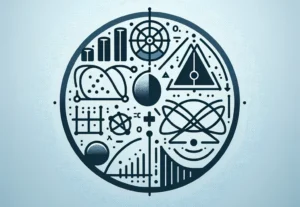So, you’ve spent countless nights under the stars, pondering over the periodic table, or deep diving into black holes — metaphorically, of course. Welcome to the league of extraordinary minds where ‘normal’ is just a setting on the dryer.
In this sea of infinite knowledge, let’s navigate through the myriad of possibilities that pure science careers offer, ensuring you find the land where your heart anchors.
Quick Takeaways:
- Pure science careers extend beyond academia, offering roles in research, environmental conservation, science communication, and more.
- Success in pure sciences demands not only intellectual curiosity but also perseverance and continuous skill updating, especially in computational areas.
- Preparing for a pure science career involves selecting challenging courses, gaining hands-on research experience, and building a professional network.
What Are Pure Science Careers?
In a nutshell, pure science careers originate from the aspiration to uncover the mysteries enthralled within physics, chemistry, biology, and mathematics. Unlike their applied sciences counterparts, where knowledge is directed towards practical objectives, pure science is driven by curiosity and the profound ambition to expand human understanding for the sake of knowledge itself.
At the heart of pure science careers is a foundation built on exploration and theoretical inquiry. Each discipline plays a pivotal role: Physics deals with the general analysis of nature, aiming to understand how the universe behaves; Chemistry explores the substances of which matter is made, the investigation of their properties and reactions, and the use of such reactions to form new substances; Biology studies living organisms and their interactions with one another and their environments; Mathematics, the abstract science of number, quantity, and space, either as abstract concepts (pure mathematics) or as applied to other disciplines such as physics and engineering (applied mathematics).
Why Choose a Pure Science Career?
Imagine being on the forefront of discovering a groundbreaking physical phenomenon, unveiling a new chemical compound with potential life-saving capabilities, or decoding the complexities of the genomic sequences that define living organisms. This is what a career in pure science promises: the allure of the unknown and the endless pursuit of knowledge.
Those drawn to pure sciences aren’t just fascinated by the subjects; they’re driven by the desire to dive deep into the realms of the unexplored and make substantial contributions that could advance humanity. Be it unraveling the mysteries of the universe, developing new technologies, or tackling some of the world’s most pressing health issues, pure science professionals have the satisfaction of knowing their work contributes significantly to the societal good.
Moreover, the intellectual satisfaction derived from understanding, predicting, and explaining phenomena in the natural world is unparalleled. Pure science careers are for those who seek not just answers but understanding, not just solutions but insights.
What Can You Do With a Degree in Pure Sciences?
Graduating with a degree in pure sciences opens a plethora of career avenues. Here’s a glimpse into the potential your pure science degree holds:
Research and Development : This is a straightforward path many pure science graduates veer towards. Whether it’s in an academic setting, government research institutes, or the R&D departments of leading corporations, your degree can be your ticket to investigating the unknown and developing new scientific understanding.
Education : Share your passion for discovery by teaching the next generation of scientists. From high school educators to university professors, teaching offers the platform to inspire and guide upcoming talents while staying engaged with the subject matter.
Science Communication : Bridging the gap between complex scientific information and the general public, careers in science journalism, writing, and media presentations are crucial. Your ability to simplify and convey complex ideas can help inform and educate society about significant scientific advances.
Environmental Conservation : With a solid understanding of biology and ecology, careers in conservation science are both impactful and rewarding. Work on initiatives aimed at protecting ecosystems, conserving biodiversity, and ensuring sustainable futures.
Data Analysis and Quantitative Research : Fields such as finance, market research, and even sports analytics value the critical thinking and analytical skills honed through a pure science education. Mathematics and physics, in particular, are highly regarded in these sectors.
Unique Insight : One often overlooked opportunity for pure science graduates is policy development. Science-educated individuals are increasingly needed in governance and policymaking to craft regulations and policies that are scientifically sound and beneficial to society. With your understanding of science’s potential and limitations, you can play a crucial role in shaping a future where science and society align more closely.
Your pure science degree equips you with critical thinking, problem-solving skills, and a profound understanding of the natural world, opening doors to a variety of rewarding career paths. Whether your journey leads you to the lab, the classroom, or beyond, the pursuit of pure science is a lifelong adventure of discovery and insight.
Certainly! Let’s dive into the realms of Pure Science careers, demystifying common misconceptions, exploring the myriad of career paths available beyond academia, and providing practical advice for those aspiring to make their mark in this exciting field.
Is Teaching the Only Option?
Far from it! While teaching is a noble and impactful career path for pure science graduates, the world of science offers a kaleidoscope of career options beyond the classroom. Let’s uncover some pathways where you can apply your passion for science:
- Research: Tap into your curiosity and contribute to the expansion of human knowledge. This can be in academia, governmental research labs, or industry settings.
- Scientific Companies: Roles vary from product development, quality assurance, to scientific sales, offering a bridge between scientific innovation and consumer needs.
- Scientific Journalism: Have a knack for communication? This field allows you to translate complex scientific information into digestible content for the public.
- Patent Law: With additional qualifications, your deep understanding of scientific principles can be invaluable in navigating the legal aspects of patenting new inventions.
- Consultancy: Use your expertise to advise businesses and policymakers on science-related issues, from environmental sustainability to technology implementation.
Diverse roles such as data analyst, bioinformatics specialist, and environmental consultant also beckon, showcasing the breadth of opportunities waiting outside academia’s doors.
What Are the Prospects and Challenges?
Careers in pure sciences can be highly rewarding, yet they come with their unique set of challenges and prospects. Here’s an honest look:
Prospects:
– The demand for STEM jobs is on the rise, with the U.S. Bureau of Labor Statistics projecting a growth of 8% across occupations from 2019 to 2029, faster than the average for all other occupations.
– Advanced degrees can unlock higher-earning positions and roles with greater responsibility. For instance, research scientists and engineers often receive competitive salaries, reflecting their specialized skills and the value they bring to industries.
Challenges:
– Academia is notoriously competitive, with a limited number of tenured positions available, pushing many to seek opportunities elsewhere.
– Fields such as environmental science and biotechnology are rapidly evolving, requiring professionals to continuously update their knowledge and skills.
One niche tip, often overlooked, is the importance of computational skills, regardless of your specific field within pure sciences. Proficiency in programming languages like Python or R can significantly boost your employability, opening doors to data analysis roles and computational research opportunities that are in high demand.
How to Prepare for a Career in Pure Sciences?
Embarking on a career in pure sciences is as thrilling as it is demanding. Here’s how you can gear up for this journey:
- Choose the Right Undergraduate Courses: Focus on subjects that genuinely interest you, but don’t shy away from courses that challenge you and broaden your skillset, especially in mathematics and computing.
- Gain Research Experience: Engage in undergraduate research projects or internships that offer hands-on experience. This not only strengthens your resume but also provides a glimpse into the life of a researcher.
- Build a Network: Attend scientific conferences, seminars, and workshops. Platforms like ResearchGate or LinkedIn can also connect you with peers and professionals in your field.
- Consider Postgraduate Studies: A master’s or Ph.D. could be crucial in opening up advanced positions in research and academia. Choose a program that aligns with your career goals and offers opportunities for collaboration and publication.
- Find Mentors: Seek out individuals who inspire you and can guide you through the intricacies of building a career in science. They could offer invaluable advice drawn from their own experiences.
Remember, a career in pure sciences is as much about persistence and passion as it is about intellect. Stay curious, keep learning, and never underestimate the power of a well-timed coffee with a potential mentor or fellow science enthusiast.
By embracing the diverse opportunities and preparing diligently, you can carve out a fulfilling career in the pure sciences. The path may not always be linear, but it promises to be a journey filled with discovery and innovation.





